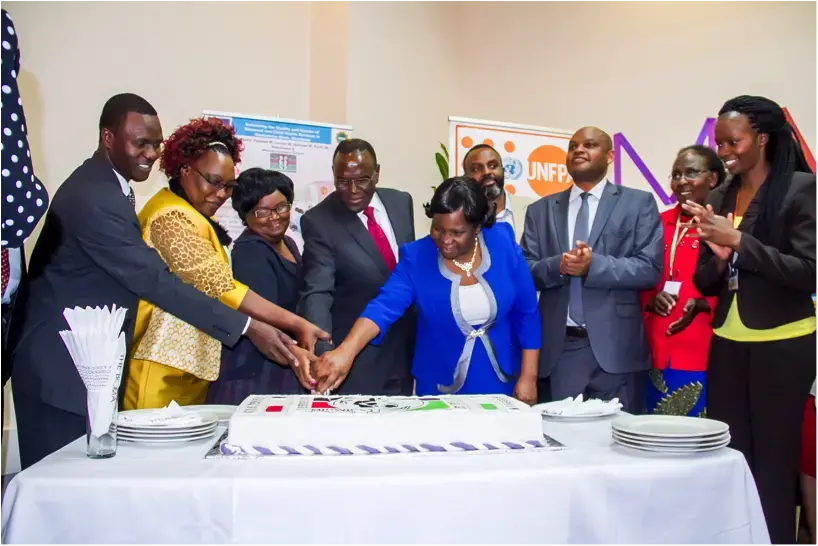WHEN Elenora Bukateci graduated with a nursing certificate in 1985 from what was then the Central Nursing School, the thought of operating midwifery clinics in an adopted country would have probably caused loud raucous laughter among her peers.
But that she has done as the co-founder of Spring Life Midwifery Ltd. In doing that, she has become the first woman of Pacific descent to establish an independent midwifery company in New Zealand, three clinics to be exact in Auckland's southern suburbs.

Ms Bukateci was the keynote speaker at the United Nations Population Fund-supported Fiji Midwifery Society 4th Scientific Conference in Labasa last weekend. Her clients are mostly women of Maori and Pacific descent. The Cakaudrove woman attributed her success to, fundamentally, passion for the work.
Implicit in decisions to migrate is the willingness to face the challenges of resettling and negotiating one's way around new realities. These meanderings saw Ms Bukateci assisting in a surgical ward but the omnipresence of death was more of an affirmation that midwifery was where her heart was.
Ms Bukateci assured midwives she understood their struggle having experienced rural nursing herself, some of the most trying of times albeit most rewarding experience-wise; arriving to a new post where semblance of a house was all there was, having to stack up mats for a bed and riding horses to reach her medical zone population.
Ms Bukateci kept about 130 midwives spellbound with tales of her "struggle" at the 4th FMS Scientific Conference to earn her right to practise what she'd always been passionate about, in New Zealand.
The 2016 annual midwifery conference theme was: Sustainable Development Goals: Fijian Midwives Rising to Meet the Challenges.
"The Fijian community needs to recognise how fortunate they are in having this profession made available to them," Ms Bukateci said while speaking to midwives at the Miracle Centre in Labasa. "To me, delivering quality care for the woman and her family is what matters most. A midwife graduating from the Fiji midwifery school should be fully competent and a safe practitioner.
"We midwives have got a huge role to play in rising up to meet the challenges. Midwifery is not only about clinical skills, it's also about evidence-based practice and applying standards. Fiji Midwifery Society needs to look for ways to lift midwifery standards to international level."
Ms Bukateci said she was often praised in New Zealand for her clinical skills which she attributed to mentors in Fiji, namely long-time Fiji National University (FNU) sexual and reproductive health and rights program manager and lecturer Alumita Bulicokocoko, and former Colonial War Memorial Hospital medical superintendent Dr Mary Schramm.

Having Ms Bukateci present throughout the conference was a boost of confidence for society members; she was a testament of the potential of their chosen profession. Well-trained and supported midwives working in communities are uniquely positioned to provide the compassionate, respectful and culturally-sensitive care a woman needs during pregnancy and childbirth.
Midwifery is equally important for newborns during the critical first month of life and is a significant contribution to sexual and reproductive health in general. In the past 25 years, the world has almost halved maternal deaths but every year about 300,000 women still die during pregnancy and childbirth, and almost three million babies do not survive their first four weeks of life.
If deployed in larger numbers, trained midwives could avert about two thirds of these deaths. Ensuring safe pregnancy and childbirth, midwives are essential for a healthy start to a people's journey towards the realisation of the Sustainable Development Goals (SDGs).
FMS president Aliote Galuvakadua acknowledged support from stakeholders and hoped that when society members returned home "they will continue to give the best care that they can".
Nabouwalu (Divisional) Hospital nurse-in-charge George Daya said he felt privileged to be part of the conference acknowledging organisers for taking it around the country so as many practitioners as possible could benefit annually.
Mr Daya said he enjoyed the sessions by Ms Bukateci very much because her professional trajectory was inspirational in that someone who was born and educated here, particularly in midwifery, could migrate and do well.
"Fiji midwives have the knowledge, have the skills, the attitude and attributes and we are competent enough to run an independent clinic, that's why I'm really challenged by her session," Mr Daya said.
FNU School of Nursing midwifery educator Chandra Dayal said the conference reassured midwives that they did not practise in isolation. It was also an opportunity to be informed of new developments in the profession and discuss with peers' research intentions.
"I think it is equally important for us to take note of the SDGs, the challenges that are before us because we want our mothers our children our families to be safe and healthy," Ms Dayal said. Ms Dayal said it was important that midwives met regularly as a collective "because we all are committed to caring for women, and babies and fathers, for the benefit of the country".
"My takeaway message was that a midwife should believe in herself. She has all the capabilities, she has all the skills, she has all the competencies, and she can perform in the utmost because she is compassionate, she has patience and she has passion for midwifery."
Director Nursing Services Silina Waqa-Ledua was impressed with research papers presented and noted the confidence in nurses to face peer review. The Ministry of Health and Medical Services' strategic plan recommends four midwives per 1000 population. For about 900,000 people, Fiji needs 3600 midwives to meet the health sector's demand.
Ms Waqa-Ledua said while the FMS members were excited about the prospects of an independent midwifery sector, midwifery practice standards would have to be significantly raised while ensuring prerequisites like approvals, related policies and legislative frameworks were met.
Ms Waqa-Ledua said such progress would only improve services delivered to ordinary people.





